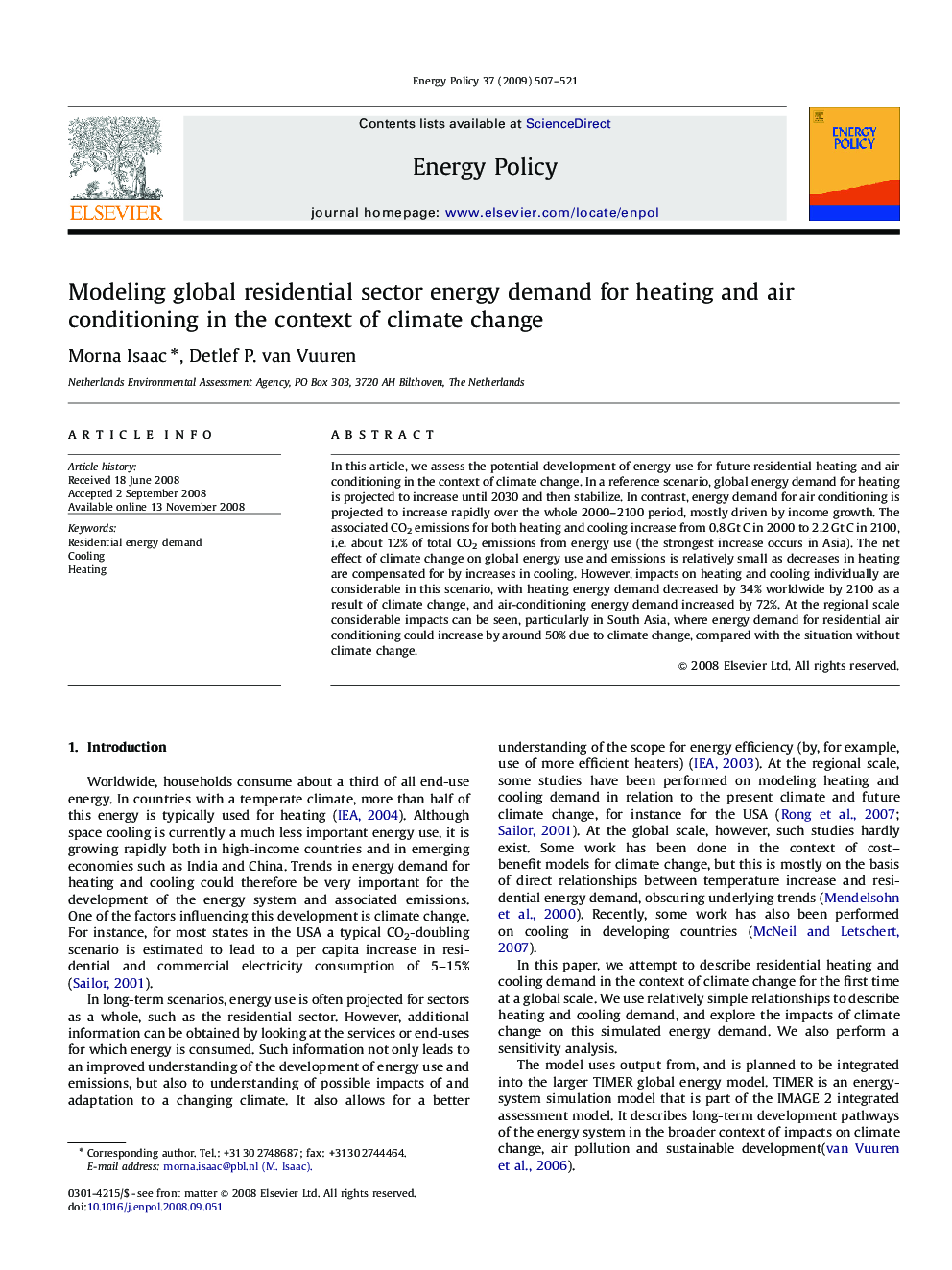| کد مقاله | کد نشریه | سال انتشار | مقاله انگلیسی | نسخه تمام متن |
|---|---|---|---|---|
| 993771 | 936051 | 2009 | 15 صفحه PDF | دانلود رایگان |

In this article, we assess the potential development of energy use for future residential heating and air conditioning in the context of climate change. In a reference scenario, global energy demand for heating is projected to increase until 2030 and then stabilize. In contrast, energy demand for air conditioning is projected to increase rapidly over the whole 2000–2100 period, mostly driven by income growth. The associated CO2 emissions for both heating and cooling increase from 0.8 Gt C in 2000 to 2.2 Gt C in 2100, i.e. about 12% of total CO2 emissions from energy use (the strongest increase occurs in Asia). The net effect of climate change on global energy use and emissions is relatively small as decreases in heating are compensated for by increases in cooling. However, impacts on heating and cooling individually are considerable in this scenario, with heating energy demand decreased by 34% worldwide by 2100 as a result of climate change, and air-conditioning energy demand increased by 72%. At the regional scale considerable impacts can be seen, particularly in South Asia, where energy demand for residential air conditioning could increase by around 50% due to climate change, compared with the situation without climate change.
Journal: Energy Policy - Volume 37, Issue 2, February 2009, Pages 507–521